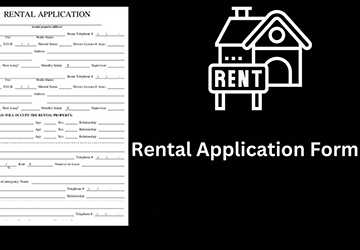Securing the optimal tenant for your rental property is paramount for ensuring a seamless and profitable landlord experience. Effective tenant screening is indispensable in selecting individuals who will remit rent punctually, maintain the property, and coexist harmoniously with neighbours. This article elucidates the tenant background check guide, illustrates how to screen rental applicants, and delineates the proper tenant screening process.

Tenant screening is the meticulous process of evaluating potential lessees to ascertain their compliance with your criteria. This procedure mitigates the risk of property damage, delinquent payments, and evictions. Here are some pivotal benefits:
- Mitigates Pecuniary Peril: Executing a tenant background check unveils any adverse fiscal history in a prospective lessee.
- Safeguards Your Real Estate: Screening ensures tenants will uphold property standards and adhere to regulations.
- Augments Communal Safety: An exhaustive tenant background check guide aids in selecting tenants who will positively impact the community.
To efficiently understand how to screen rental applicants, adhere to these steps:
Initiate by establishing explicit criteria for your ideal tenant, encompassing income requisites, rental history, and references. Articulate these criteria in your rental listing to attract qualified candidates.
- Income Verification: Confirm the applicant's income is at least threefold the monthly rent.
- Rental History Examination: Seek a stable rental history devoid of evictions.
- References: Solicit references from prior landlords and employers.
A comprehensive background check is fundamental to the proper tenant screening process; this entails:
- Credit Evaluation: Scrutinize the applicant's credit history to evaluate their financial prudence.
- Criminal Background Investigation: Ensure no criminal records that could jeopardize your property or other tenants exist.
- Eviction History Review: Investigate any past evictions indicating problematic conduct.
Conduct interviews to discern the applicant's personality and suitability. Prepare a list of inquiries to comprehend their lifestyle and expectations.
- Lifestyle Inquiries: Probe into their work schedule, hobbies, and pets.
- Expectations Clarification: Elucidate their understanding of lease terms and property regulations.
Authenticate all Information provided by the applicant. This step includes contacting references and confirming employment details.
- Employment Verification: Affirm the applicant's employment status and income.
- Landlord References: Communicate with previous landlords to gauge the applicant's behaviour and reliability.
After amassing all the necessary Information, it's time to decide. Compare the applicants against your criteria and select the most suitable one.
- Criteria Alignment: Ensure the chosen applicant meets all pre-established criteria.
- Intuition: Occasionally, your instinct about an applicant can influence the final decision.
Apply an identical screening process to all applicants to avert discrimination claims, ensuring fairness and compliance with housing laws.
Maintain meticulous records of the tenant background check guide and all screening procedures. This documentation is crucial if any disputes arise later.
Be transparent with applicants about your screening process; this cultivates trust and establishes clear expectations.
Consider enlisting a professional screening service to manage the more intricate aspects of the proper tenant screening process. These services provide in-depth checks and reports.
Due to time constraints, include all parts of the tenant background check guide. Each step is critical to ensuring the proper tenant selection.
Do not disregard any red flags raised during the rental applicant screening process. Address these concerns directly before finalizing a decision.
Allocate ample time to screen rental applicants thoroughly. Rushing can result in overlooking vital details that could influence your decision.
The digital epoch has furnished landlords with many tools to augment the tenant background check guide and understand how to screen rental applicants.
- Online Applications: Utilize comprehensive online application forms to procure exhaustive Information from prospective tenants.

- Digital Background Checks: Deploy software that proffers instantaneous background checks to screen rental applicants expeditiously.
- AI-Powered Analysis: Engage AI apparatus to scrutinize data and prognosticate tenant reliability and comportment patterns.
A frequently neglected facet of the proper tenant screening process is the appraisal of a prospective tenant's social media presence.
- Behavioral Insights: Social media profiles can divulge insights into the applicant’s lifestyle and disposition.
- Verification of Information: Cross-examine the Information furnished in the application with their social media activities.
While self-conducted screenings can be meticulous, professional screening services provide expertise that elevates the tenant background check guide.
- Comprehensive Reports: These services furnish detailed reports encompassing financial, criminal, and rental histories.
- Expert Analysis: Professional services provide expert exegesis and recommendations predicated on the screening results.
Despite the indispensability of digital tools, face-to-face interviews remain a quintessential component of the proper tenant screening process.
- Assessing Communication Skills: Appraise the applicant's aptitude to communicate efficaciously and respectfully.
- Observing Non-Verbal Cues: Attend body language and other non-verbal cues that might bespeak reliability or potential issues.
A tenant scorecard is an advanced implementation in the proper tenant screening process that quantifies each applicant's suitability.
- Criteria Weighting: Allocate disparate weights to various screening criteria such as income, credit score, and references.
- Scoring System: Devise a scoring system to rank applicants predicated on their scores against your criteria.
Adherence to local and federal laws is an indispensable aspect of the proper tenant screening process.
- Fair Housing Laws: Ascertain your screening process conforms to all fair housing laws to prevent discrimination claims.
- Privacy Regulations: Safeguard applicant data by complying with privacy regulations such as GDPR or CCPA.
Regularly review and ameliorate your tenant background check guide to preempt potential issues.
- Feedback Loop: Amass feedback from tenants about the screening process and implement necessary adjustments.
- Market Trends: Stay abreast of market trends and legal modifications that could impact the screening process.
An orientation session for new tenants can bolster the outcomes of the tenant background check guide.
- Expectations Setting: Unambiguously communicate expectations regarding property care and communal behaviour.
- Support Systems: Introduce new tenants to available support systems and contact points for any issues.
A meticulous and proper tenant screening process is essential for selecting reliable and responsible tenants. Following the steps outlined in this guide on screen rental applicants, you can effectively screen applicants and make informed decisions protecting your property and investment. Remember, the objective is to find tenants who will treat your property respectfully and fulfil their rental obligations.